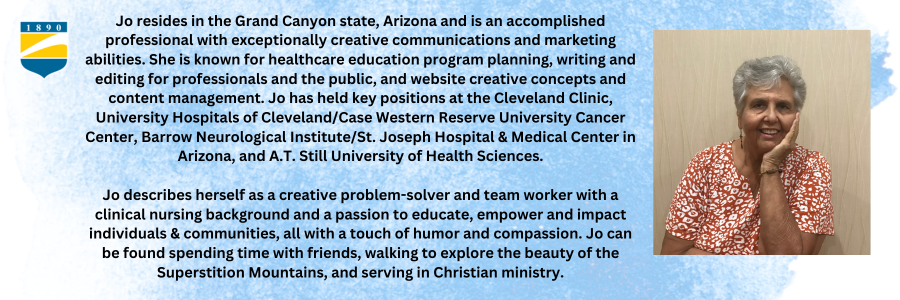How to Become a Home Health Aide
Does improving quality of life for an individual who may be elderly, disabled, or in need of home care while recovering from an illness interest you? If you have a desire to work with this population of individuals to brighten their lives, consider if you should become a home health aide (HHA).
Why Choose to Become a Home Health Aide
A reason to think about choosing to become a home health aide is the increase in demand for these individuals in healthcare. As people age, they are at higher risk of developing chronic illnesses and/or disabilities that require personal assistance outside of a hospital setting. Home health aides may also work with people recovering from hospitalization for illness or surgery or with hospice patients. In addition, younger individuals with developmental disabilities, cognitive disabilities, or mental health issues may need a home health aide.
According to the Occupational Outlook Handbook, jobs for HHAs are expected to increase 21 percent from 2023-2033 in the United States, greatly surpassing the average growth rate of four percent for other occupations. Also, the Occupational Outlook Handbook reports that a home health aide’s midpoint annual salary was $33,530 in May of 2023, and the top 10% of earners made more than $42,450. Salaries can vary depending on a variety of factors such as the work setting and geographic location.
What Training is Needed to Become a Home Health Aide?
To learn the skills to become a home health aide, training programs such as Blackstone Career Institute’s (BCI) accredited Home Health Aide training program are available online. Blackstone’s online program can be finished within a short amount of time and at your own pace, and the final step is completing a 120-hour in-person externship. A high school diploma or GED is required for program admission.
Program coursework usually includes medical terminology, anatomy, assisting with special procedures, how to use certain medical equipment such as oxygen, and how to handle emergency situations. At BCI, the Home Health Aide training program includes the following program goals for students to prepare them to become a home health aide:
- Understand and explain basic diet modifications for patients with specific dietary needs and/or restrictions.
- Be able to demonstrate the correct practice of standard (universal precautions) in a client’s home to prevent the spread of any infection.
- Understand and be able to explain how a home health aide meets the physical, emotional, social, and spiritual needs of a dying client.
- Know and be able to carry out special procedures such as heat/cold applications, medication administration, collecting specimens, oxygen use, intravenous infusions, dry dressings, and infection control.
- Learn critical thinking and interpersonal communication skills.
Other training programs to become a home health aide may be offered through community colleges or home healthcare agencies. Federal requirements mandate 75 hours of minimal training. However, requirements for certification and licensing can vary throughout the country so it is important to check that state’s requirements before enrolling in a specific program.
After completion of your HHA training program, you can submit an application to the state where you plan to work and take an exam for certification. There are also professional organizations to be aware of such as the National Home Care & Hospice Association or Home Care Association of America as well as others that can help you explore opportunities.
What Does a Day Look Like as a Home Health Aide?
Keep in mind that home health aides are under the supervision of another healthcare professional such as a nurse or therapist. Common daily tasks may include taking a patient’s vital signs, helping an individual with activities of daily living such as bathing or getting dressed, and providing skin care. Other responsibilities can include preparing meals based on a patient’s nutritional needs and dietary recommendations, aiding with arranging doctor’s appointments and transportation, and helping patients with devices that assist them such as walkers, braces, or prosthetics.
Home health aides are responsible for reporting to the healthcare professional the patient’s status, what service(s) was given to the patient, and plans for the patient with each visit, no matter what the home health aide’s setting of employment.
Responsibilities can vary depending on what is allowed by the individual state’s requirements for performing certain care duties. Although many home health aides are employed in home settings, there can also be opportunities to work as an aide in assisted living facilities, group homes, rehab centers, hospice care, and more.
What Traits Are Important to Become a Home Health Aide?
Working as a home health aide can be stressful and challenging. At times, the job can be physically rigorous and emotionally demanding. It is important that you consider training time, job responsibilities, certification requirements, and common salary earnings to know if choosing to become a home health aide is the right healthcare career choice for you.
Also, according to Indeed, these characteristics and skills are important to become a home health aide and be effective:
- Empathy: Be able to respect the concerns of the patient and practice active listening while creating a good relationship with the patient.
- Interpersonal communication skills: Since a home health aide interacts with patients, family members, healthcare professionals, and others, it is critical to have good verbal and written communication skills.
- Flexibility and Patience: Being a home health aide requires not only great attention to detail but also flexibility, time management, and a good deal of patience. A home health aide has to adapt to the patient’s possible changing emotional needs and physical limitations. Often, a home health aide must adjust care routines to accommodate the patient’s immediate needs.
However, if you decide to become a home health aide, know that it can be a rewarding healthcare career. Home health aides help individuals remain independent and can improve their physical, emotional, and social well-being. You can better others’ lives by giving them peace of mind and making a difference in their quality of life.
Written by Jo Gambosi


Disclaimer: Blackstone Career Institute, an accredited school, cannot guarantee employment, job promotion prospects, or income increases.













